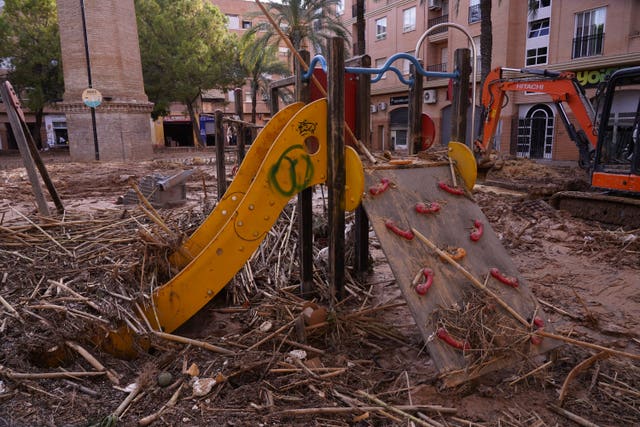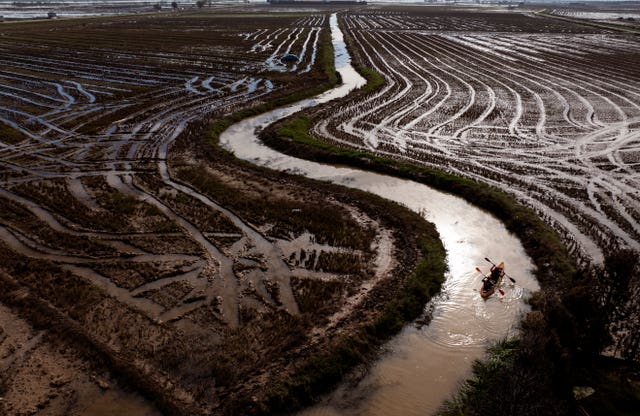
New storms in Spain have caused school closures and train cancellations, two weeks after flash floods in the Valencia region killed more than 220 people and destroyed thousands of homes.
Coastal areas of Valencia were placed under the highest alert on Wednesday evening, with forecasters warning up to 180mm (7in) of rain could fall there within five hours.
Clean-up efforts in parts of Valencia hardest hit by the October 29 storm are continuing, and there are concerns over what more rain could bring to streets still covered with mud and debris.

In southern Malaga province, streets were flooded while 3,000 people near the Guadalhorce river were moved from their homes as a preventative measure.
Schools across the province were closed, along with many stores. Train services were cancelled between Malaga and Madrid, and between Barcelona and Valencia.
Valencia’s regional government also restricted the use of private vehicles until Thursday in areas hit by the October storm, when tsunami-like floods caused cars to be washed away.

There were no reports of deaths due to the new storms.
Spanish weather forecaster AEMET put Malaga on red alert, saying up to 70mm (3in) of rain had accumulated in an hour. Parts of Tarragona province in the east also faced heavy rain and remained under red alert.
The forecast in Malaga delayed the start of the Billie Jean King Cup tennis finals between Spain and Poland, which was set for Wednesday.
The storm system affecting Spain is caused by warm air that collides with stagnant cold air and forms powerful rain clouds. Experts say that drought and flood cycles are increasing with climate change.


Why are you making commenting on The National only available to subscribers?
We know there are thousands of National readers who want to debate, argue and go back and forth in the comments section of our stories. We’ve got the most informed readers in Scotland, asking each other the big questions about the future of our country.
Unfortunately, though, these important debates are being spoiled by a vocal minority of trolls who aren’t really interested in the issues, try to derail the conversations, register under fake names, and post vile abuse.
So that’s why we’ve decided to make the ability to comment only available to our paying subscribers. That way, all the trolls who post abuse on our website will have to pay if they want to join the debate – and risk a permanent ban from the account that they subscribe with.
The conversation will go back to what it should be about – people who care passionately about the issues, but disagree constructively on what we should do about them. Let’s get that debate started!
Callum Baird, Editor of The National
Comments: Our rules
We want our comments to be a lively and valuable part of our community - a place where readers can debate and engage with the most important local issues. The ability to comment on our stories is a privilege, not a right, however, and that privilege may be withdrawn if it is abused or misused.
Please report any comments that break our rules.
Read the rules here